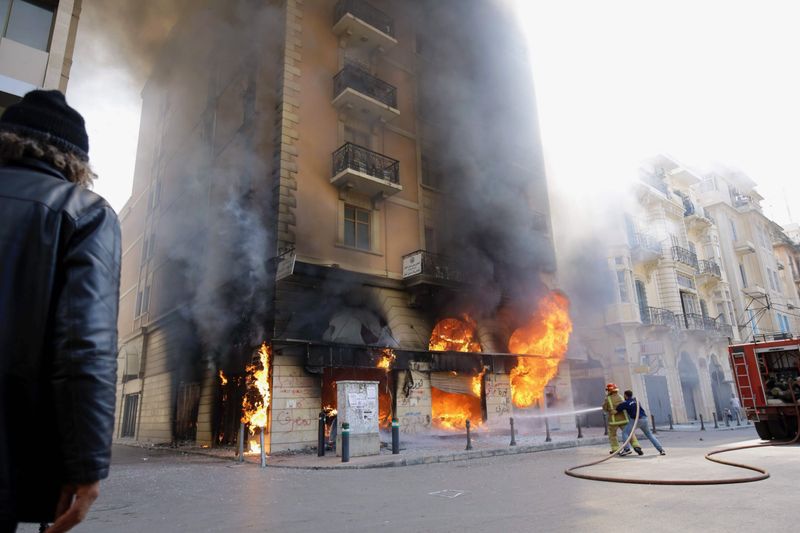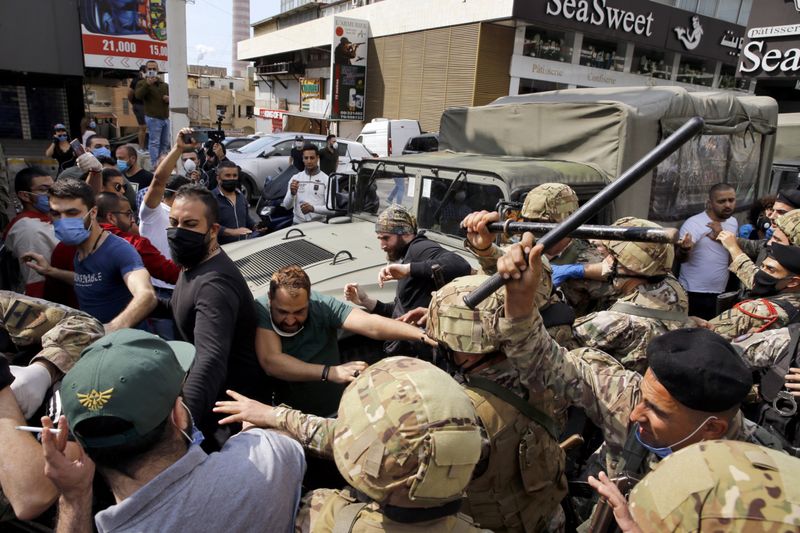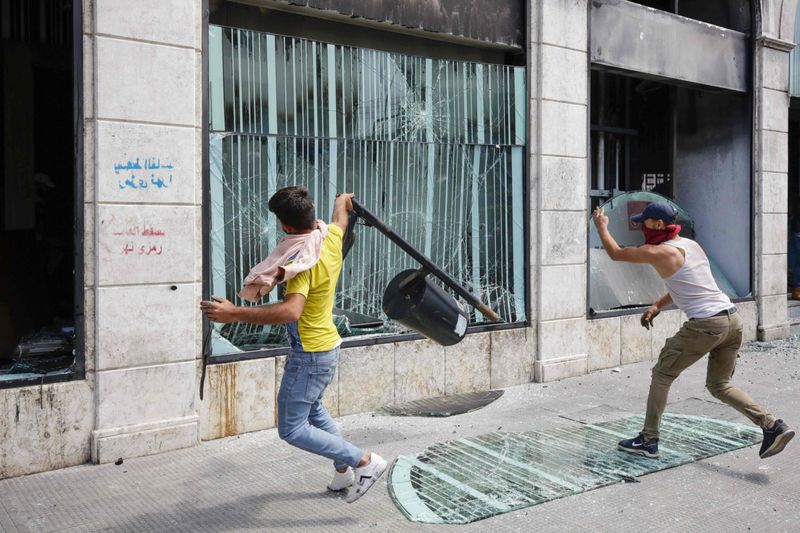



By Sarah Dadouch — BEIRUT — Violence escalated Tuesday in the northern Lebanese city of Tripoli as protesters angered by the collapse of the country’s currency and spreading economic upheaval burned down a series of banks and countered volleys of tear gas by pelting security forces with stones. These latest arson attacks came at the end of a large funeral for 26-year-old Fawwaz al-Samman, who died Monday from gunshot wounds, which his sister said on Facebook he had suffered during clashes with the army. The army released a statement Tuesday expressing regret for his death, without claiming responsibility, and announced it is opening an investigation into the incident. As mourners filled the streets of Tripoli for his funeral, they dubbed him “Martyr of the Hunger Revolution.” But shortly after the government announced Friday a five-phase plan to reopen the country, the protesters — overwhelmingly young and frustrated with the severe lack of job opportunities — emerged from their quarantine. Molotov cocktails destroyed a bank branch late on Saturday in the southern city Tyre. The following two nights, more banks were attacked and set on fire across the country. Protesters shut down highways. The army retaliated with tear gas and rubber bullets.
by AFP — TRIPOLI: Lebanese protesters angered by a spiralling economic crisis clashed with security forces in the country´s north overnight as a months-old anti government movement gained new momentum despite a coronavirus lockdown. A 26-year-old protester died on Tuesday from a bullet wound he had sustained during the confrontations between the army and hundreds of demonstrators that rocked Lebanon´s second city of Tripoli. Sixty people were injured, including some 40 soldiers, during the exchange which saw protesters throw stones at troops who fired live rounds into the air to try to disperse the angry crowds under clouds of tear gas.
The overnight violence was the latest in a string of anti-government protests and social unrest fuelled by unprecedented inflation that this week saw a free-falling Lebanese pound reach record lows against the dollar. Angered by the financial collapse, demonstrators across Lebanon have rallied, blocked roads and vandalised banks for two days, re-energising a protest movement launched in October against a political class the activists deem inept and corrupt. “I came down to raise my voice against hunger, poverty and rising prices,” Khaled, a 41-year-old protester, told AFP from Tripoli, adding that he could no longer support his three children since he lost his job selling motorcycle spare parts. – ´Social explosion´
Lebanon is mired in its worst economic crisis since the 1975-1990 civil war, now compounded by a nationwide lockdown to stem the spread of the coronavirus which has killed 24 people and infected almost 700 more. The Lebanese pound has lost more than half of its value on the black market, where it traded at a record low of around 4,000 pounds to the dollar this week. Economy Minister Raoul Nehme on Tuesday said that prices have risen by 55 per cent, while the government estimates that 45 per cent of the population now lives below the poverty line. This has unleashed a public outcry against a government that has yet to deliver a long awaited rescue plan to shore up the country´s finances more than three months since it was nominated to address the crisis. “No reform measures have been taken,” Sami Nader, director of the Levant Institute for Strategic Affairs, told AFP. The only major step taken has been the suspension of Eurobond debt payments, he said, referring to a March announcement by the government that it would default on its sovereign debt for the first time due to dwindling foreign currency reserves. With no clear government plan to exit the crisis, Nader said, Lebanon is heading “towards an inevitable social explosion”.



